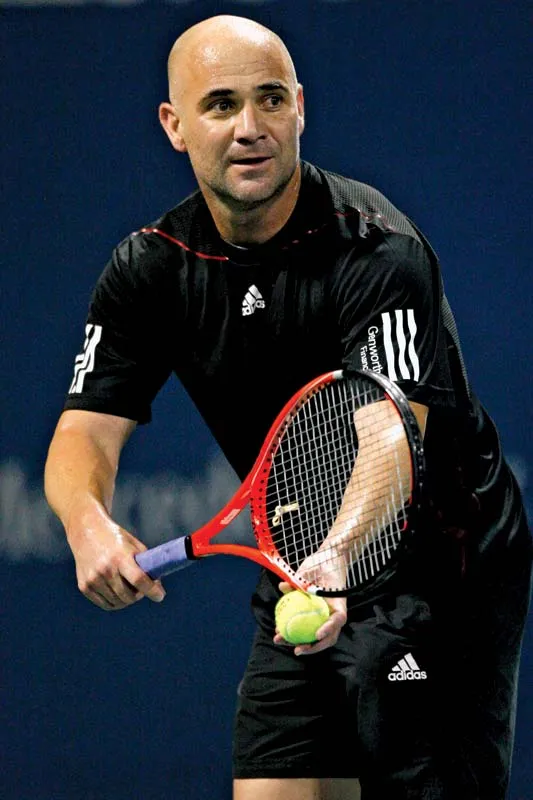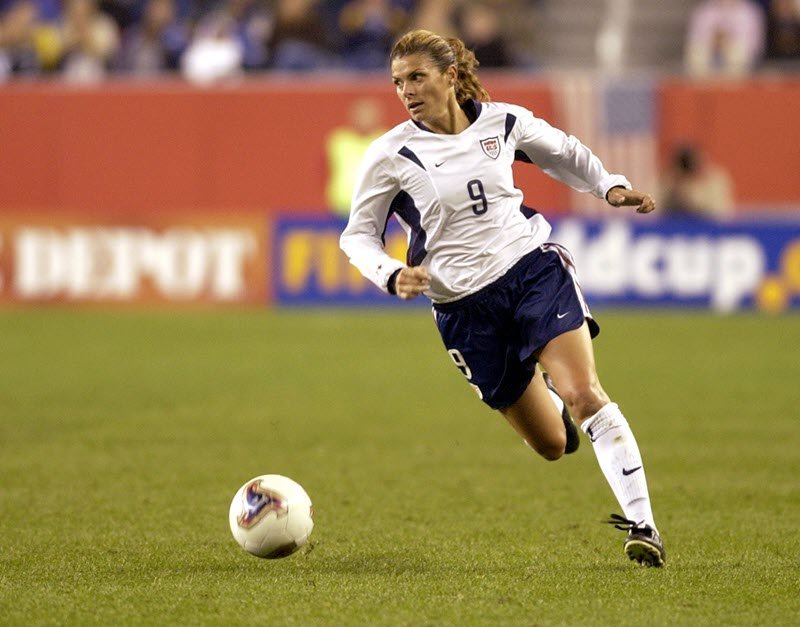10 Essential Tips for Parenting Youth Athletes
Discover essential tips in parenting youth athletes to support your young athlete’s development on and off the field.
Learn how to nurture, support, and guide your youth athlete with these top 10 essential parenting tips for fostering a balanced, healthy approach to sports.
– Coach Johnny

Introduction
Parenting youth athletes presents unique challenges and rewards.
The demands of managing training schedules and competitions and balancing other commitments can be strenuous.
Yet, watching your child excel, learn discipline, and grow in confidence is immensely rewarding.
Supportive parenting is vital in this journey, not only to foster athletic skills but also to develop well-rounded individuals.
It encourages physical prowess and nurtures resilience, teamwork, and academic excellence.
Such a holistic approach ensures that the young athlete fully benefits from sports and learns valuable life lessons far beyond the field or court.

“What makes something special is not just what you have to gain, but what you feel there is to lose.”
– Andre Agassi, former professional tennis player – This highlights the importance of parenting youth athletes to value their achievements and the lessons learned through challenges.
Tip 1: Encourage Balance
Balancing sports with academics, social life, and other interests is crucial for the well-being and growth of youth athletes.
Overemphasis on sports can lead to burnout and prevent well-rounded development. To avoid this, it’s essential to establish a structured schedule.
This helps ensure that both homework and sports receive adequate attention.
It’s also important to include time for relaxation and social activities to maintain a healthy social life and mental well-being.
Encouraging your child to engage in diverse activities can enhance their overall development. Participating in various hobbies promotes different skills and intellectual curiosity.
It also teaches them valuable life skills like time management, prioritization, and organization.
These skills are crucial for efficiently managing and preparing multiple responsibilities for future demands.
By implementing these strategies, parents can help their children maintain a balanced lifestyle that fosters growth in all areas of life.
“My coach said I run like a girl, and I said if he ran a little faster, he could too.”
– Mia Hamm, a former professional soccer player, shares a powerful message about challenging stereotypes in sports. This quote emphasizes the importance of coaches encouraging young athletes to embrace their abilities and confront gender stereotypes with confidence.

Tip 2: Emphasize Fun and Enjoyment
Prioritizing fun in youth sports is crucial as it keeps children’s interest alive and deepens their love for the game.
When sports are enjoyable, young athletes are likelier to stay engaged, continue participating long-term, and foster a positive relationship with physical activity.
Keeping sports fun also eases the pressure and stress from competition and performance expectations, supporting a healthier, more balanced sports approach.
To make sports engaging and enjoyable for your child, focus on creating a supportive environment instead of just winning.
Introduce games and playful competitions that foster skill development in a fun way.
Encourage team activities that build camaraderie and help form friendships.
Also, let your child have a say in their sports involvement—allow them to pick activities they like and involve them in decisions about their participation level.
This empowerment enhances their enjoyment and adds personal significance to their sports experience.
Tip 3: Focus on Personal Growth, Not Just Winning
Emphasize the importance of personal development rather than solely focusing on the outcome of games.
Teach young athletes to value progress and learning as much as, or even more than, the final score.
Highlighting values such as teamwork, perseverance, and sportsmanship is crucial.
These qualities enhance young athletes’ sports experience and contribute significantly to their character and interpersonal skills.
Encourage athletes to see each practice and game as an opportunity to develop these traits.
Show them how collaborating effectively with teammates, persisting through challenges, and playing fairly are all victories in their own right.
Teach them to set personal goals that reflect their commitment to growth in these areas, not just in terms of wins and losses.
By focusing on these aspects, young athletes can enjoy a more fulfilling and enriching sports experience, which will equip them for various aspects of life.
Tip 4: Foster Independence
Encourage parents to step back and let their children decide about sports involvement.
This empowerment fosters independence and helps young athletes develop crucial decision-making skills.
By letting children choose which sports to participate in or decide how intensely they want to engage, they learn to listen to and trust their own instincts.
This autonomy can lead to a greater sense of ownership and enjoyment in their sporting activities.
Allowing young athletes to learn from their experiences, including their successes and setbacks, is invaluable.
It teaches them responsibility and helps them understand the consequences of their choices, both positive and negative.
Such experiences are critical in building resilience and adaptability—qualities that will benefit them in all areas of life.
Encouraging independence enhances their enjoyment and engagement in sports and contributes to their overall personal growth.

“The most important thing is to try and inspire people so that they can be great at whatever they want to do.”
The late professional basketball player Kobe Bryant emphasized the role of inspiration in coaching. This reflects the vital responsibility coaches have in motivating youth athletes and parenting them to pursue excellence in their sports and in life.
Tip 5: Promote Goal Setting
Goal setting is a powerful tool for motivating and guiding young athletes in their sports endeavors.
By setting specific, measurable, achievable, relevant, and time-bound (SMART) goals, young athletes can see clear pathways to improvement and success, which boosts their motivation and commitment.
Goals give them concrete targets to strive toward, providing a sense of direction and purpose in their training and competitions.
When setting goals with your child, it’s important to ensure they are realistic and achievable.
Start by understanding what your child wants to achieve in their sport.
Help break these aspirations into smaller, manageable objectives.
Celebrate when these smaller goals are met, reinforcing their sense of accomplishment and encouraging them to continue working hard.
Involving your child in the goal-setting process empowers them, making the goals more personal and meaningful, and teaches them the valuable life skill of planning for success.
Tip 6: Ensure Proper Nutrition and Rest
Proper nutrition and sufficient rest are the foundation of any young athlete’s performance and growth.
A balanced diet provides the essential nutrients to fuel active bodies and support physical development, recovery, and overall health.
Parents should emphasize the importance of including various nutrients in their child’s diet—such as proteins for muscle repair, carbohydrates for energy, and vitamins and minerals for overall body functions.
In addition to nutrition, adequate rest is crucial.
Quality sleep allows the body to repair itself and consolidate memories related to skill acquisition and training.
Young athletes should establish consistent sleep routines to ensure they get enough rest to perform their best physically and mentally.
Practical advice for parents includes preparing balanced meals rich in essential nutrients and setting regular, consistent bedtimes.
Encourage downtime before sleep to help athletes wind down and ensure a restful night, which is critical for their recovery and performance.
Tip 7: Communicate Openly and Supportively
Open and supportive communication is pivotal in enhancing your child’s sports experience.
It helps build trust and lets your child know they can share their thoughts and feelings about their athletic involvement without judgment.
This open line of communication is essential for understanding what your child enjoys about sports, any pressures they may feel, and how they perceive their own progress and challenges.
Techniques for effective communication include practicing active listening, which involves giving your child full attention when they speak, acknowledging their feelings, and asking open-ended questions to encourage further discussion.
Additionally, providing constructive feedback is crucial.
This means offering specific and actionable guidance, focusing on areas for improvement while also acknowledging what they are doing well.
Always ensure feedback is delivered in a supportive manner to motivate and uplift your child rather than discourage them.
By maintaining a supportive dialogue, parents can help foster a positive sports environment that nurtures their child’s development and love for the game.
“You miss 100% of the shots you don’t take.”
– Wayne Gretzky, a former professional ice hockey player, captures a critical lesson for coaching and parenting youth athletes. This quote is a powerful reminder to encourage young athletes to seize opportunities, take risks, and not be afraid to attempt new challenges in their sporting endeavors.

Tip 8: Teach Resilience in the Face of Challenges
Teaching resilience is crucial in helping your child handle setbacks and losses in sports.
This skill enables young athletes to bounce back from disappointments and continue striving towards their goals.
Resilience not only aids in sports but is also a valuable life skill.
Start by normalizing setbacks as a natural part of learning and improvement.
Emphasize that every athlete, regardless of skill level, experiences losses and challenges. This doesn’t just apply to parenting youth athletes.
This perspective can help your child see setbacks as opportunities for growth rather than failures.
Encourage them to identify what they can learn from each experience and how they can apply it in the future.
Strategies to build resilience include setting small, manageable objectives that lead to larger goals, maintaining a positive outlook, and cultivating a supportive environment where feelings can be openly discussed.
Celebrate their efforts and perseverance as much as their victories.
By fostering a positive mindset and resilience, you’re equipping your child with the tools to handle whatever comes their way in sports and beyond.
Tip 9: Stay Involved and Informed
Staying involved and informed about your child’s sports activities is essential for providing effective support.
Being present at games and practice sessions shows your child that you care about their interests and gives you a deeper understanding of their environment and progress.
However, balancing involvement with respect for your child’s independence is important.
You can show support without overbearing by encouraging their efforts and celebrating their accomplishments, regardless of the outcome.
Instead of focusing solely on performance, ask them about their experiences and feelings related to their sport, which promotes open communication.
Additionally, educate yourself about the sport’s rules, techniques, and culture.
This knowledge makes engaging in meaningful conversations with your child about their activities easier and shows that you value what they are passionate about.
By staying involved yet respectful of their space, you help nurture a positive and encouraging environment for your child to thrive in their sports endeavors.

“Success is no accident. It is hard work, perseverance, learning, studying, sacrifice, and most of all, love of what you are doing or learning to do.”
– Pele, the legendary professional footballer, shares profound insight about coaching and parenting youth athletes. This quote underscores the importance of instilling values such as diligence, persistence, and passion in young athletes, teaching them that achieving success in sports and life requires more than talent—it demands dedication and a deep love for the activity.
Tip 10: Seek Professional Advice When Necessary
Recognizing when to seek professional advice is crucial in supporting your child’s athletic and personal development.
Guidance from coaches, trainers, or sports psychologists is essential at key moments in a young athlete’s career.
It becomes crucial if your child struggles with training, feels undue stress, or loses enjoyment in their sport.
Professionals like sports psychologists can offer specialized strategies and insights into mental conditioning, which is vital for overcoming mental blocks, handling pressure, and improving focus.
Similarly, coaches and trainers possess the technical expertise to refine skills and enhance physical performance safely.
To find reliable, professional advice, consult your child’s coaching team. They can often provide referrals.
Additionally, local sports clinics and associations are valuable resources.
Online platforms and sports organizations may also offer directories of qualified professionals.
Seeking out these experts helps address specific challenges and supports your child in achieving their fullest potential in sports and beyond.
Conclusion
In this post, as it relates to parenting youth athletes, we’ve explored key strategies parents can use to support their child’s youth sports experience.
We discussed the importance of prioritizing fun and enjoyment to keep children motivated and passionate about sports.
It was also emphasized that focusing on personal growth over winning highlights the crucial role of skills like teamwork, perseverance, and sportsmanship.
We discussed ensuring proper nutrition and rest, which are vital for a young athlete’s performance and health.
Communication was another significant theme, emphasizing the need for open, supportive dialogues that foster understanding and encouragement.
Building resilience helps young athletes navigate setbacks and challenges, while involved parenting shows support without being overbearing.
We also discussed when seeking professional advice for the best guidance and support is appropriate.
Each family’s situation is unique, and parenting tips for youth athletes should be adapted to fit your specific circumstances and your child’s needs.
By thoughtfully applying these principles, you can create an environment that supports your young athlete’s thriving on and off the field.
Call to Action
We’ve covered a lot in this post, but the conversation doesn’t end here, and we’d love to hear from you!
If you’re a parent, coach, or someone involved in youth sports, please share your own tips and experiences in the comments section below.
Your insights and stories are invaluable and can help others navigate the exciting world of youth sports.
Don’t keep these strategies to yourself—share this blog post with other parents of youth athletes to spread the knowledge.
Sharing these tips, whether through social media, email, or a chat at the next game, could make a big difference in their sports parenting journey.
Let’s work together to create a supportive community where all our young athletes can thrive.
So, share your thoughts, and let’s continue this important discussion to benefit as many families as possible.
Join the JK Tribe
Coach Johnny is a youth sports coach with over 30 years of experience. He continues to coach various sports in various age groups (pre-high school) for all genders. He is also the founder of Johnny’s Kidz and the JK Tribe. If you would like to support his journey and become a Tribe member, reach out and Buy Coach A Cup of Coffee. And remember, The Game Belongs to Them!
